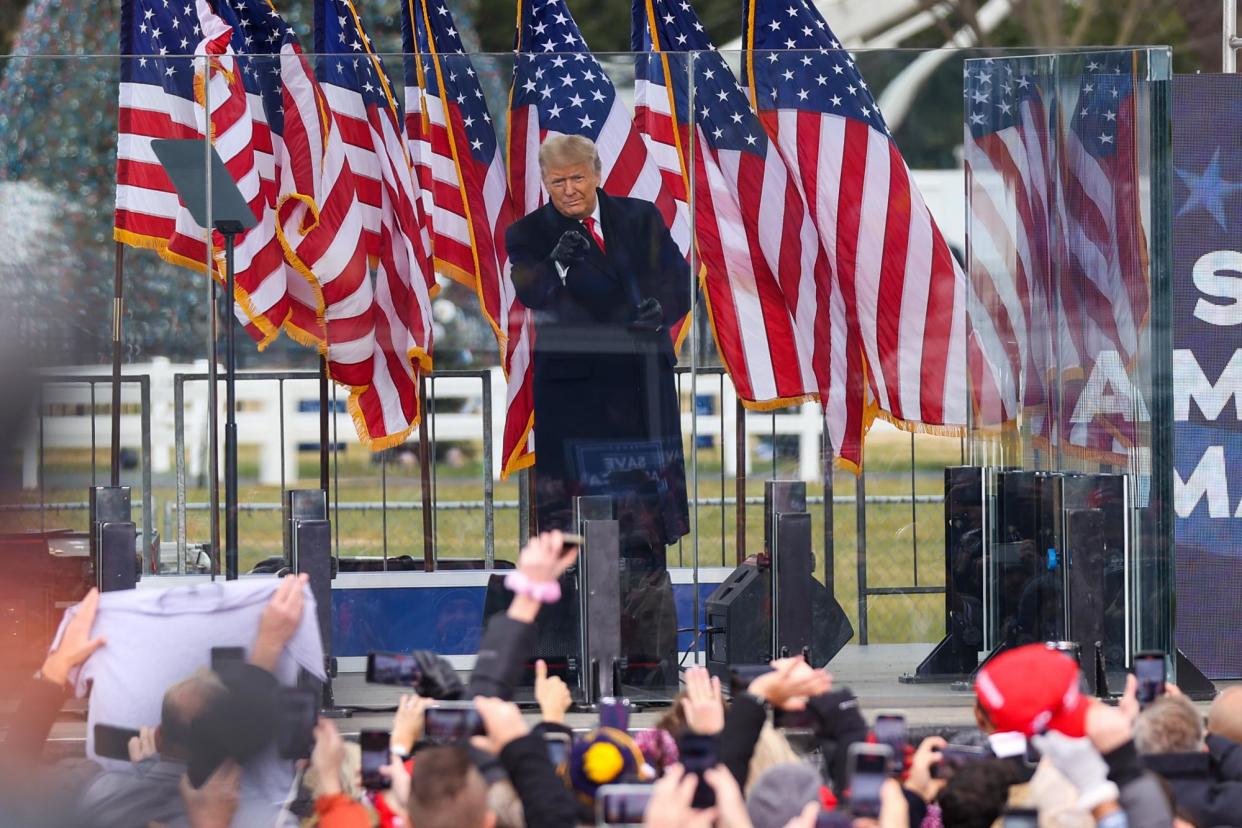Trump immunity case: read supreme court’s decision in full

The supreme court has ruled that a former president has absolute immunity for his core constitutional powers. The decision fell along party lines, with six conservative justices ruling against three liberal ones.
But the court finds that former presidents are not entitled to immunity from prosecution for actions taken in a private capacity.
Monday’s decision is a victory for Donald Trump, dramatically reducing the likelihood that the federal criminal case against him on charges that he plotted to stop the transfer of power will proceed before the 2024 election.
Writing the court’s opinion, Chief Justice John Roberts said:
Under our constitutional structure of separated powers, the nature of Presidential power entitles a former President to absolute immunity from criminal prosecution for actions within his conclusive and preclusive constitutional authority. And he is entitled to at least presumptive immunity from prosecution for all his official acts. There is no immunity for unofficial acts.
Justice Sonia Sotomayor, writing in dissent, said the court’s decision in the Trump immunity case “makes a mockery of the principle … that no man is above the law”.
She wrote:
Today’s decision to grant former Presidents criminal immunity reshapes the institution of the Presidency. It makes a mockery of the principle, foundational to our Constitution and system of Government, that no man is above the law.
The indictment “paints a stark portrait of a President desperate to stay in power”, she continued.
Because our Constitution does not shield a former President from answering for criminal and treasonous acts, I dissent.

 Yahoo News
Yahoo News 
